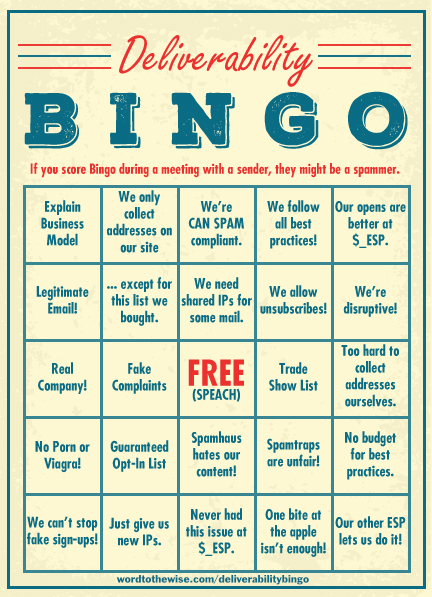Dealing with blocklists, deliverability and abuse people
There are a lot of things all of us in the deliverability, abuse and blocklist space have heard, over and over and over again. They’re so common they’re running jokes in the industry. These phrases are used by spammers, but a lot of non-spammers seem to use them as well.
The most famous is probably “I’m sure they’ll unblock me if I can just explain my business model.” Trust me, the folks blocking your mail don’t want to hear about your business model. They just want you to stop doing whatever it is you’re doing. In fact, I’m one of the few people in the space who actually wants to hear about your business model – so I can help you reach your goals without doing things that get you blocked.
A few months ago, after getting off yet another phone call where I talked clients down from explaining their business model to Spamhaus, I put together list of phrases that senders really shouldn’t use when talking to their ESP, a blocklist provider or an abuse desk. I posted it to a closed list and one of the participants put it together into a bingo card.
A lot of these statements are valid marketing and business statements. But the folks responsible for blocking mail don’t really care. They just want their users to be happy with the mail they receive.